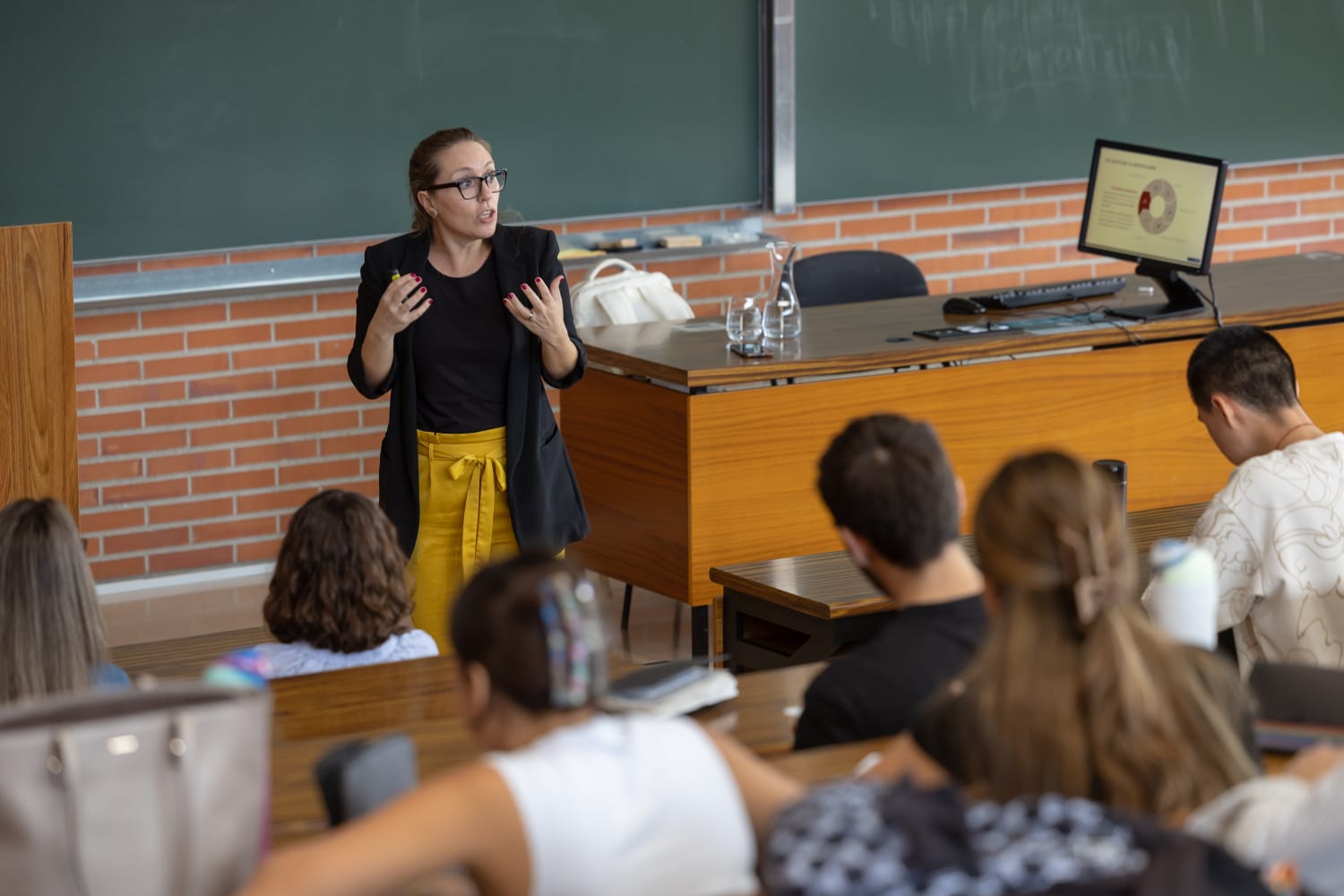
Between September 10 and 18, our Lab Associate Bernardita Tornero participated in a series of high-level academic events hosted by universities in Spain and Italy. Her contributions ranged from serving on a doctoral thesis committee to presenting keynote lectures, highlighting the international recognition of her research on motivation, learning, and character education.
At the University of Navarra, Bernardita was an international member of the doctoral thesis committee for Carla Elizalde Resano, whose research focused on mental health stigma in adolescents. She also gave a keynote lecture to education students titled “Motivación y aprendizaje: ¿Cuál es el rol de la motivación en el aprendizaje?” and held meetings with leading research groups and faculty authorities. According to Bernardita, “the seminar at the University of Navarra was characterized by a more academic and formal format, centered on the evaluation of a doctoral thesis and on meetings with research groups and authorities.”
From September 15 to 17, Bernardita took part in the annual conference Human Flourishing, Psychological Well-being, and Virtue, organized by the Aretai Center on Virtues. In this setting, she co-presented with Drs. Mario De Caro, Claudia Navarini, and Maria Silvia Vaccarezza the talk “Catching Character through Phronetic Teachers.” Reflecting on this experience, she highlighted that “the conference at the European University of Rome was an interdisciplinary space with multiple speakers and an agenda focused on advances and theoretical debate about virtues, well-being, and human flourishing. The diversity of perspectives was the most enriching aspect.”
On September 18, Bernardita was one of three keynote speakers at the international workshop “Education, AI and Neurodivergence: Ethical Challenges”, co-organized by Roma Tre University and the Italian Society for Neuroethics. Her lecture, “Character as Caught and Taught: The Role of Teachers”, fostered direct dialogue with researchers from multiple countries, and as she explained, “the workshop at Roma Tre had a much more participatory and flexible format, where I was able to exchange ideas directly with international colleagues. It was less about formal results and more about exploring new ideas together.”
Bernardita noted that these events also opened new opportunities for collaboration, including the possibility of co-authoring an article for the Journal of Philosophy of Education on the role of teachers in fostering students’ character. She also reflected on the differences she observed between Europe and Latin America, pointing out that “what caught my attention was the greater articulation in Europe between philosophy, psychology, and education, something that in Latin America tends to be worked on more fragmentedly. Another difference that the academic observed was the presence in Europe of a stronger institutional framework for research on virtues and applied ethics in education, supported by specialized centers that promote international networks. In contrast, she noted that in Chile and Latin America these efforts are still more isolated and lack stable structural funding.